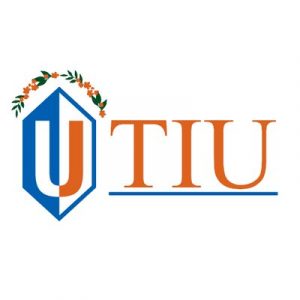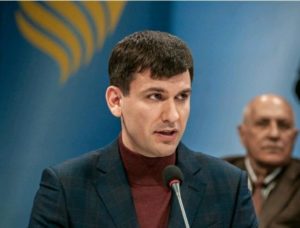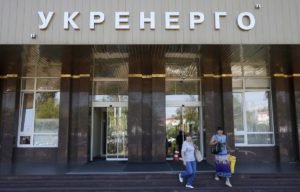
On Wednesday, the business court of Kyiv will hear a court case under a claim of TIU Canada, owned by Refraction Asset Management (Calgary, Canada), against Nikopol Ferroalloy Plant (NFP) due to the disconnection of its 10.5 MW solar power plant from the power grid in March 2020 year.
“Today’s hearing is the first date for the trial since the completion of the preliminary hearing last month,” TIU Canada said in a report, which is available to Interfax-Ukraine.
According to the report, the solar power plant with a capacity of 10.5 MW was disconnected by the NFP from the power grid on March 2, 2020 “despite the fact that only electricity producers have the right to initiate the disconnection of the plant from the power grid in accordance with Ukrainian law.”
TIU Canada aims to immediately restore the connection to the electric grid and plans to bring NFP and its shareholders to full responsibility in accordance with the legislation of Ukraine, the company said.
The company said that NFP took advantage of the fact that the solar power plant was connected to a substation located on its territory, and explained the need for shutdown by carrying out repair work.
According to TIU Canada, the illegal shutdown caused over EUR 1.5 million in losses to the company, which “continue growing every day.”
At the same time, the company refers in the report to the high assessment of its activities by the President of Ukraine Volodymyr Zelensky at Ukraine Reform Conference in Toronto in July 2019, who noted the priority of developing green energy and thanked the company for its work in this area.
“Now this case is becoming a test of President Zelensky’s readiness to protect foreign investors in Ukraine,” TIU Canada said.

German investors believe that the main problem in Ukraine is not corruption, but the work of the judicial branch of power, German Ambassador to Ukraine Anka Feldhusen has said.
“What German investors really need is the same rules for everyone. What always scares our investors is bad examples when even large German companies in Ukraine are under pressure from law enforcement agencies, like the State Security Service of Ukraine (SBU). The reason for this is not clear to us. Companies just want to work quietly in Ukraine, to give jobs and make a profit. This is closely related to the judicial reform. Our investors tell me that corruption is no longer such a big problem,” the ambassador said in an exclusive interview with Interfax-Ukraine.
According to her, in order to attract German small and medium-sized businesses to Ukraine, they need to be given good examples that they can invest in Ukraine and be calm.
“When I used to work in Ukraine, there was always the issue of VAT refund, now it is not. Now the problem is the possibility that competitors go to court for completely incomprehensible reasons, and for large German companies it is still possible, because they have lawyers, money and time. Very often they win lawsuits, but it lasts a long time. The German economy is a medium and small business, and in order to attract them to Ukraine, they need to give them good examples that they can invest in Ukraine and be calm,” Feldhusen said.
At the same time, the ambassador said that a German pharmaceutical company recently bought the Biopharma plant in Bila Tserkva, Kyiv region. “This is a good example, because it did not happen in Kyiv, not in Kharkiv, not in Dnipro. This is a small city and it will be good for people,” she said.
“Another example is the Kostal company, which produces automotive electronics. They are already working in Pereyaslav-Khmelnytsky, and now they are opening a plant near Boryspil (both cities are located in Kyiv region). In this case, the question was about connecting the plant to the infrastructure. It is not at all clear why it was so difficult. They solved it with the help of the Ukrainian government. There will be a new plant and many new jobs,” the ambassador said.
Feldhusen said that German business has a desire to invest in Ukraine, only more good examples are lacking.

Kyiv Court of Appeal overturned the judgment of Pechersky District Court of Kyiv on seizure of 42 paintings of fifth President of Ukraine, Leader of the European Solidarity Party Petro Poroshenko, under the investigation into the alleged illegal movement of art treasures across the state border.
The Register of Judgments states that the decision to cancel the seizure was issued on July 27, 2020.
“The appeal of lawyer Holovan must be redressed. The decision of the investigating judge of Pechersky District Court of Kyiv dated May 27, 2020, who seized property of 42 paintings and one lithograph, which are material evidence in criminal proceedings has to be cancelled and new decision, which to refuse in sustaining the prosecutor’s motion for the seizure of property has to be made,” Kyiv Court of Appeal said in its decision.
As reported, on May 26 The Ukrainian State Bureau of Investigations (SBI) has summoned fifth president of Ukraine and MP Petro Poroshenko for questioning as a witness in two criminal cases (illegal transfer of the collection of paintings across the state border and illegal use of the technical means of obtaining the information).
The Grand Chamber of the Supreme Court of Ukraine has sent the dispute over the Corvalolum well-known brand to the court of lowest instance for repeated hearing and partially satisfied cassation claims of the Economic Development and Trade Ministry of Ukraine and PJSC Farmak, annulling the ruling of the appeal court and the ruling of the court of lower instance.
Earlier, the Kyiv business court of appeals under the counterclaim of PrJSC Darnitsa Pharmaceutical Firm revoked the decision of the Appeals Chamber of the Ministry of Economic Development and Trade recognizing the designation Corvalolum as well-known.
“PJSC Farmak stands for civilized competition and for many years it has been defending its rights to the Corvalolum well-known brand. We defend our right only to the brand designation,” Farmak Legal Director Dmytro Taranchuk said.
He said that “the medicine itself and its components are not protected by a patent, and it is not protected in Ukraine from the point of view of intellectual property.”
“A similar medicine can be produced by any manufacturer who will prove its quality and effectiveness and undergo all the required licensing procedures. But under a different name, under its own brand,” the lawyer said.

Thirty-nine non-governmental organizations are going to take a legal action to declare unlawful a constituent assembly held on Monday, April 22, to form the public council under Ukraine’s Social Policy Ministry.
Head of NGO All-Ukrainian Platform of Donbass, head of the public council under the Ministry of Temporary Occupied Territories and Internally Displaced Persons of Ukraine Hennadiy Borisichev announced this in a comment to Interfax-Ukraine.
According to him, the initiative group on the formation of the public council under the Social Policy Ministry has “committed gross violations of the law, and the meeting itself [on the formation of the public council] was held behind closed doors.”
“The activity of the initiative group was not transparent, with undisguised abuse of authority. Thirty-nine representatives of NGOs were not allowed to participate in the constituent assembly. This is an anti-record for the entire existence of the institution of public councils in our country,” he said.
According to Borisichev, human rights activists and journalists who arrived at the meeting were also not allowed to take part. Representatives of NGOs had a scuffle with the guards.
Members of anti-corruption NGOs were also not let in for the meeting, he said.
“The NGOs are now preparing documents for the court to recognize the constituent assembly on the formation of the public council under the Ministry of Social Policy as illegal,” he said.
COURT, NON-GOVERNMENTAL ORGANIZATIONS, PUBLIC COUNCIL, SOCIAL POLICY

National Energy Company Ukrenergo has signed a contract with Lalive S.A. (Switzerland) to present the interests of the company in a case on compensation of losses due to annexation of Crimea by Russia. According to a company report in the ProZorro e-procurement system, the contract on the provision of legal services worth EUR 1.537 million (or UAH 49.9 million without VAT) was signed on February 6, 2019.
Covington & Burling, Hughes Hubbard & Reed, and Quinn Emanuel Urquhart & Sullivan UK also took part in the tender.
Lalive will provide Ukrenergo with the services of preparing and sending a notice of arbitration to the dispute, determining the nomination of arbitrators and shaping the composition of international arbitration, drafting a claim and applying to arbitration, representing the interests of the company in arbitration tribunal and obtaining the award.
As reported, Lalive represented the interests of the following companies in disputes against the Russian Federation regarding lost investments: Ukrnafta, Stabil, and Yukos Capital.
In April 2018 Ukrenergo officially notified the Russian Federation about the start of an investment dispute over the company’s assets seized in Crimea. According to estimates by Ukrenergo, only the cost of the company’s power grids in the peninsula is about $1 billion.
Ukrenergo operates trunk and interstate transmission lines, as well as centralized dispatching of the country’s integrated power grids. It is a state-owned enterprise, which was managed by Ukraine’s Energy and Coal Industry Ministry.